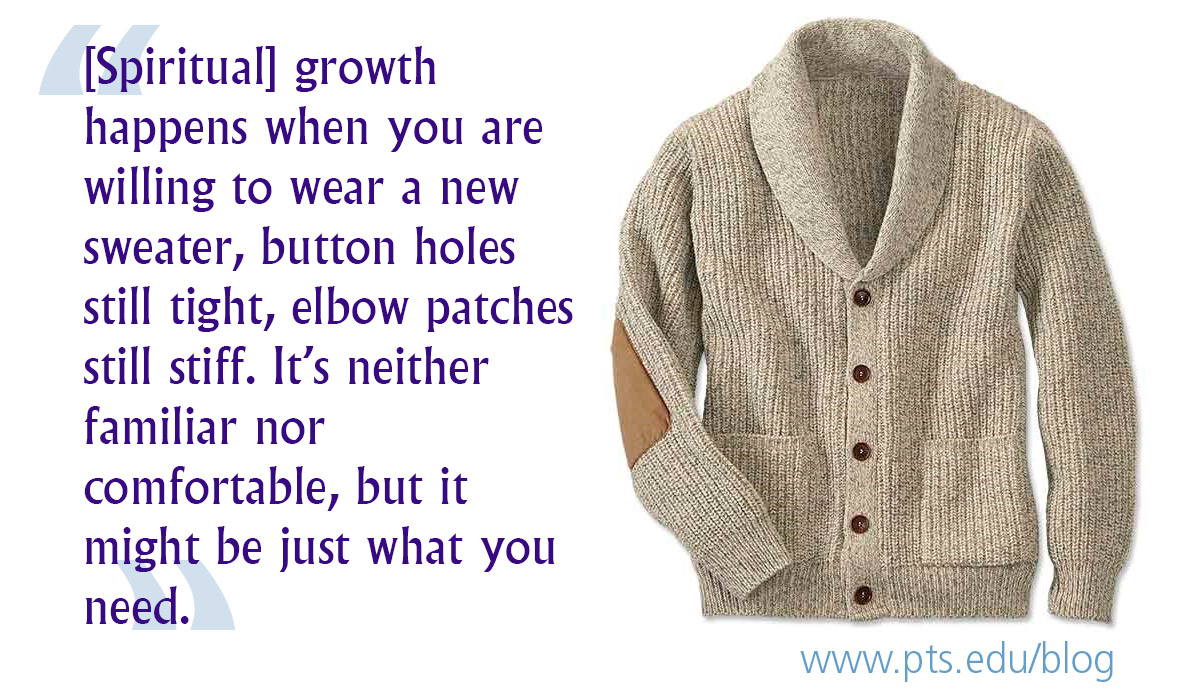My kids were each wearing blue the other morning—Duke blue—when my seven-year-old daughter slipped into my bedroom as I was getting ready for work and saw the narrow blue stripes on my dress shirt. “Oh, good!” she declared. “You’re wearing blue too!”
“Yes,” I said, “but I’m about to put on a green sweater.”
She looked skeptically at the cardigan splayed across the bed. “Not that green sweater!”
“What’s that supposed to mean?”
She invoked the fashion sense of one of her older brothers: “I agree with Silas—that sweater doesn’t look so good.”
The kids have been contending that I’m overly fond of old things. Exhibit A: the green sweater. My briefcase is exhibit B—broken zipper, missing strap, faded brown leather. Then there’s the green La-Z-Boy in the basement—my chair for reading, writing, praying, and, yes, escaping them. Their case is solid.
But they’re wrong. Most of the old things I love weren’t old when I got them. I carried that La-Z-Boy from the warehouse to the car and ripped the plastic wrap off when we got home 13 years ago.
I like these things because they are comfortable, familiar, cozy—not because they’re old.
Having rounded the corner into a new year, we are now squarely facing that frightening horizon of the unknown—300-and-some-odd uncharted days. And when facing all the coming year’s not-yets, we’re tempted to find comfort in our green sweaters: comfortable relationships, established routines, familiar patterns of life.
Including those comfortable, established, familiar patterns of prayer.
A spiritual director used an analogy once to help me see how spiritual growth occurs in life. Imagine a campfire, he said. Close to the campfire it’s warm and bright. Further away stands the ominous woods in which you imagine rodents of unusual size and other assorted fairytale menaces. You don’t want to leave this fire.
But we grow, he continued, when we allow ourselves to inch away from the cozy comfort of the fire and move toward the mystery of the unknown—the unknown in the depth of ourselves and in the mystery of others, the infinite unknown that is the heart of God.
He could just as easily have said: growth happens when you are willing to wear a new sweater, button holes still tight, elbow patches still stiff. It’s neither familiar nor comfortable, but it might be just what you need.
A year ago I started the Spiritual Exercises of Ignatius of Loyola. This was a stretch for me, the spiritual equivalent to learning a new sport. The Exercises engaged spiritual muscles I never used in prayer, especially my imagination. I’d long had a deep resistance to the Exercises, afraid to let my unwieldy imagination into relationship with God, which the Exercises require. But a process of discernment led me to this adventure. A year later I’ve faced fears I never wanted to admit and grown in freedom from attachments I didn’t know I had.
But it disrupted my routines. I couldn’t do the Exercises and still spend as much time in lectio divina and silence each morning as I was used to. So I put those in the drawer for a time.
I’m back to my familiar patterns, but I engage them differently now. I’m more likely to offer my imagination to God—to speak to God through the images that come to me and be led by God through them as well.
I would never recommend mindless exploration of new prayer practices for novelty’s sake. But if you are feeling yourself drawn to a new practice or repelled by one, either of these intuitions merits further attention. It’s just possible the Spirit is inviting you to push your seat back from the fire until its heat can no longer protect you from the dark night’s chill, to push your chair a little closer to God’s terrifying beauty, God’s unrestrained wildness.
Or in other words: You might need to put the old green sweater in the drawer.
Don’t take it to the thrift store, just stow it until the moment the Spirit—through a movement in your soul or the voice of a soul friend—says, Pull it out again. Try it on. See how it feels now. Now that you’ve been changed, it might fit you better than before.
The Rev. Dr. L. Roger Owens is associate professor of Christian spirituality and ministry at Pittsburgh Theological Seminary and teaches courses in the MDiv, Doctor of Ministry, and Continuing Education programs. Before coming to PTS he served urban and rural churches for eight years in North Carolina as co-pastor with his wife Ginger. He has written multiple books including The Shape of Participation: A Theology of Church Practices which was called “this decades best work in ecclesiology” by The Christian Century.

